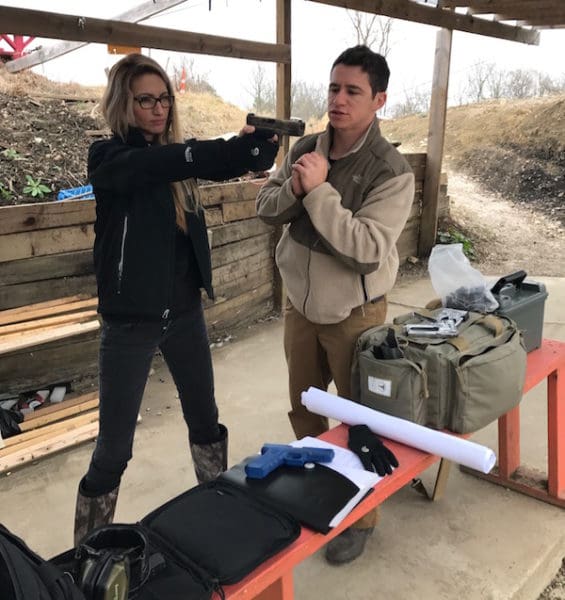A Texan can shoot someone “who is fleeing immediately after committing burglary, robbery, aggravated robbery, or theft during the nighttime from escaping with the property.” In the northeast, shooting a fleeing nighttime burglar would win a gun owner some an extended stay in the rebar hotel. If you haven’t already done your pre-defensive gun use deadly force homework . . .
fire-up the Google search engine, enter your home state’s name and “legal use of deadly force” and press play. Read your state’s actual statute.
There are some general rules for letting loose the ballistic dogs of war. The basic formula is simple enough: you can shoot someone if they pose an imminent, credible threat of death or grievous bodily harm. Let’s break that down . . .
Imminent
dictionary.com defines “imminent” as “likely to occur at any moment; impending.” From a gun owner’s point-of-view, it’s better to define “imminent” as “in the process of happening.” It’s a subtle but crucial difference.
An imminent threat of grievous bodily harm or death isn’t a threat that’s about to happen. It’s a threat that’s actually happening. A threat is imminent if the bad guy or guys are actively trying to hurt or kill you (or other innocent life).
If someone across the street waves a knife at you and says “Hey d-bag! I’m going to f you up,” that’s a threat of grievous bodily harm or death. But it’s not an imminent threat. Not until they cross the street and begin their attack.
By the same token, if you escape someone who tries to hurt or kill you, you can’t grab your gun, return and open fire. In that case you’re shooting a potential threat, not an imminent threat — even though the threat was imminent.
Credible
dictionary.com defines “credible” as “believable.” From a gun owner’s point-of-view, that’s pretty much it.
If the person waving a knife and threatening you from across the street is an elderly woman in a wheelchair, that’s not a credible threat. If she starts a slow roll in your direction, stand your ground laws be damned, that’s still not a credible threat. If she aims a rifle at you from across the street, yeah, that qualifies.
Grievous bodily harm
dictionary.com defines “grievous” as causing great pain or suffering. From a gun owner’s point-of-view, it’s better to define “grievous” as a significant, sustained injury.
While a slap across the face can be plenty painful, that kind of bodily harm doesn’t justifies a ballistic response. An imminent, credible prospect of sexual assault, however, does.
Wiggle Room
With all these terms — imminent, credible, grievous — there’s plenty of wiggle room. For example, there’ve been women who’ve shot and killed their abuser when he wasn’t in the process of abusing them. Their defense lawyer stretched the definition of an “imminent threat” to successfully claimed justifiable homicide.
All these conditions are subject to interpretation (a.k.a., Monday morning quarterbacking) by the police, prosecutor, judge and/or jury. (Not to mention friends, family, co-workers, employers and the media.) The authorities and your peers are supposed to make their judgements based on what’s called the “totality of circumstances”: the who, what, when, where, how and why of the entire incident.
They are also supposed to be constrained by what’s called the “reasonable person standard.” They’re supposed to ask themselves if a reasonable person in the same circumstances would consider the threat imminent, credible and potentially grievous or deadly. (Click here for a full explanation of these concepts.)
In conclusion . . .
Generally speaking, you can legally shoot someone who’s in the process of attacking you (or other innocent life) if they’re fully capable of seriously hurting or killing you (or other innocent life).
Of course, just because you can shoot someone doesn’t necessarily mean you should — especially if you can run away or use some effective form of non-firearm self-defense. But you are on safe ground if you do. Depending on where you live and other factors beyond your control. But at least you have a reasonable chance of being alive to confront them.
